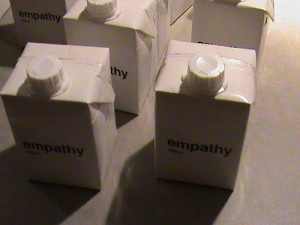Ashoka is launching an “Empathy” initiative, which would be a great resource for the future. At the moment, they are looking for someone to lead the program.
Empathy. We don’t hear the term every day, but Ashoka Fellows over the past thirty years have shown time and again that there is no practice more fundamental to the human experience and no skill closer to the heart of what it means to be a changemaker. Its presence–and as profoundly, its absence–can be seen amongst the myriad challenges that populate our daily headlines, whether school bullying, ethnic conflict, crime, or the global preparedness of tomorrow’s workforce. The ability to see a face and know what its feeling, to see suffering and to want to stop it, to identify a problem and take bold action to solve it: empathy is relevant to all of us, no matter who we are and no matter what we do. It is also the linchpin in the set of skills that enables someone to collaborate, lead, and innovate effectively.
That’s why Ashoka is launching an initiative aimed at changing the way our education system works, so that empathy becomes as much of a priority as math or language arts.
Bill Drayton calls empathy a “mandatory leadership skill” in his talk to Stanford Business School students.
Nearly 500 of the people Drayton calls “change makers” have formed programs that aim to shape young people into effective leaders. Helping youth develop empathy for others is critical to creating a better world, Drayton believes, since both empathy and teamwork are mandatory leadership skills. “If you don’t have those skills you are living in a very scary world and there’s not going to be much demand for you,” he warned. “Anyone who does not have that skill is going to be marginalized.”
…
“Successful growing up is no longer mastering technology and rules,” said Drayton. “You have to have social skill literacy, empathy, teamwork, and leadership.”

